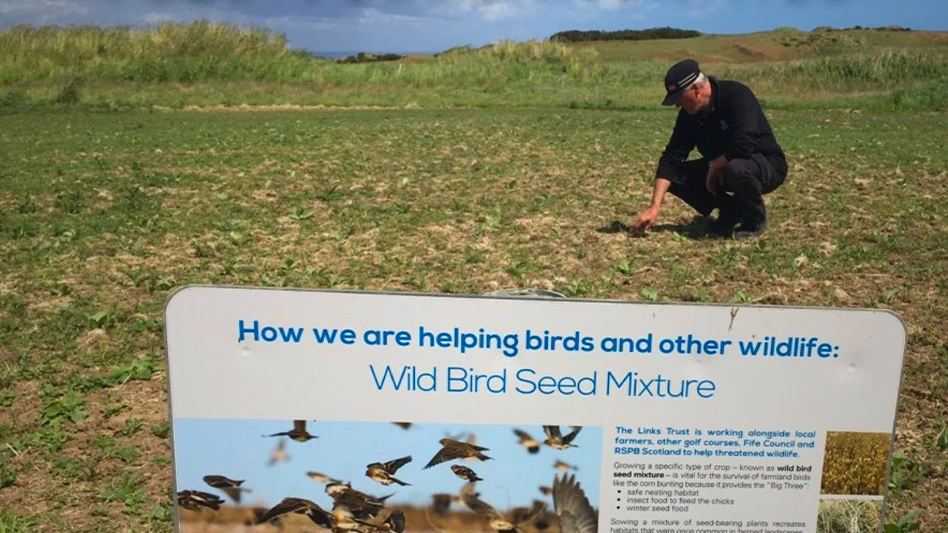 Ron Dodson Ron Dodson | The golf industry is at a crossroads. Much has been accomplished during the last two decades concerning golf course planning, design and management, especially as they relate to ensuring and maintaining environmental quality. However, our industry, like everyone else, has been and continues to be gripped by economic uncertainty. As we make your way the best we can through this economically uncertain time, there are opportunities for the golf course industry to build upon its previous environmental improvements and become prominent leaders in the more recent movement connected with sustainability. The International Sustainability Council (ISC) supports golf course facilities that are run as well-rounded, well-though-out businesses. For example, the ISC publicly states: “A sustainable golf facility is an economically sound business that provides safe, healthy and enjoyable environments for all employees, members, visitors, and guests. A sustainable golf facility is sited, designed, and constructed in ways that enhance the local community, and reduce or eliminate its impact on natural resources. It is managed in ways that provide balance between optimum playing conditions for golfers, and good stewardship of the natural environment. Management strategies are based upon scientifically sound site specific best practices that improve the quality of all life on the site, regionally, and beyond. Through outreach and education, a sustainable golf facility is a champion and advocate of sustainability.” The issues faced by the golf course industry are wide and varied. Economic conditions are the driving force for the future of the industry. While many factors that drive economic conditions are beyond the scope of an individual course manager, those economic factors nevertheless go hand-in-hand with environmental management opportunities that are available and accessible to course management. The relationship between economic, environmental and social concerns is not always obvious, but the three issues are nevertheless intimately connected. Sustainability is a characteristic of a process or state that can be maintained at a certain level indefinitely, according to the ISC. The term, in its environmental usage, refers to the potential longevity of vital human ecological support systems, such as the planet’s climatic system, systems of agriculture, industry, forestry and fisheries, and human communities in general and the various systems on which they depend. In recent years, an academic and public debate has led to the use of the word “sustainability” in reference to how long human ecological systems can be expected to be usefully productive. Observers point out that in the past, complex human societies have died out, sometimes as a result of their own growth and associated impacts on ecological support systems. You see, the important implication to note here is that a modern industrial society, which continues to grow in scale and complexity, might also collapse. Therefore, the implied preference would be for systems to be productive indefinitely, or be sustainable. In many regards, past unsustainable business practices are responsible for the present state of the global economy. Sustainability is focused on the “triple-bottom line” of profit, planet and, of course, people. Plainly spoken, this means it is vital that we focus on monetary issues, environmental issues and social issues, both locally and globally. Many golf course superintendents and managers recognize that they are managing their facilities as part of a watershed and community resource. Many courses are, in fact, part of their home towns’ green infrastructures and are important components of those communities’ water-management systems. However, most people don’t value natural systems and ecological processes. And they most certainly don’t value the human-managed systems created and managed by professional golf course turf managers and stewards. Even with all of the improvements made with regard to environmental management in the golf course industry over the past 20-plus years, there is still much to be accomplished. Now is the time for those of use in the golf course industry to fully embrace the leadership opportunities associated with insuring a sustainable future not only for the game of golf, but also a sustainable future for our planet.
|

Explore the June 2012 Issue
Check out more from this issue and find your next story to read.
Latest from Golf Course Industry
- Making the grade — at or near grade
- PBI-Gordon receives local business honor
- Florida's Windsor takes environmental step
- GCSAA names Grassroots Ambassador Leadership Award winners
- Turf & Soil Diagnostics promotes Duane Otto to president
- Reel Turf Techs: Ben Herberger
- Brian Costello elected ASGCA president
- The Aquatrols Company story





